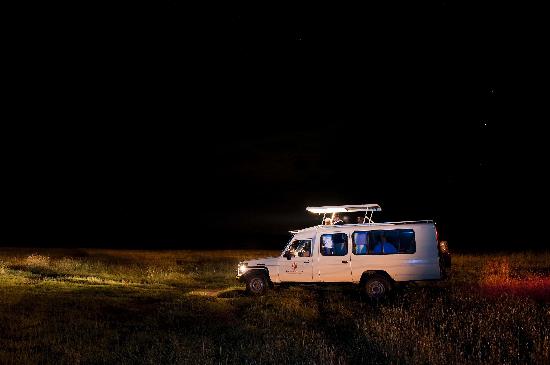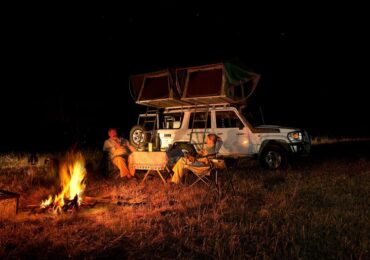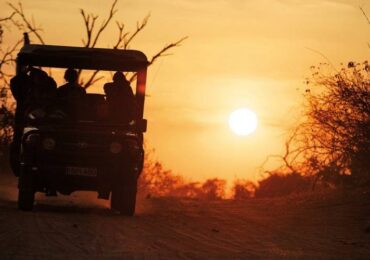
Night Driving Considerations for Self-Drive Safaris in Uganda
Night Driving Considerations for Self-Drive Safaris in Uganda. Embarking on a self-drive safari in Uganda is an exhilarating adventure, offering an intimate and flexible way to explore the country’s rich wildlife and stunning landscapes. However, driving at night in Uganda comes with unique challenges and considerations. Whether you are an experienced driver or a novice, understanding these factors is crucial for a safe and enjoyable journey. Here, we delve into the important aspects to keep in mind when driving at night during your self-drive safari in Uganda.

The Unpredictable Wildlife
First and foremost, Uganda is teeming with wildlife, and many animals are nocturnal. Driving at night increases the likelihood of encountering animals on the road. Unlike the controlled environments of game reserves or national parks, wildlife can unexpectedly cross the road, posing significant risks. It is essential to drive slowly and remain vigilant. Bright headlights can help, but they may also startle animals, causing unpredictable behavior.
Additionally, be aware that certain species, such as elephants, may be more active at night. These large animals can be particularly dangerous if encountered suddenly. Always give wildlife the right of way and maintain a safe distance to avoid accidents.
Poor Road Conditions
Uganda’s road infrastructure varies widely, with many rural roads being unpaved and poorly maintained. At night, these conditions are exacerbated by reduced visibility. Potholes, uneven surfaces, and unmarked obstacles can be difficult to see, making night driving more hazardous. Before setting out, ensure your vehicle is equipped with good quality, high-intensity headlights and consider additional spotlights if possible.
Furthermore, it’s wise to avoid remote or less-traveled roads at night. Stick to main highways and well-known routes where possible. Carry a reliable GPS or detailed maps, as getting lost in unfamiliar territory can be particularly perilous after dark.
Limited Road Signage and Lighting
In many parts of Uganda, road signage is sparse and street lighting is virtually non-existent outside urban areas. This lack of guidance can make navigation challenging and increase the risk of missing important turns or exits. Ensure you have a clear understanding of your route before setting off and keep an eye out for landmarks or notable features that can guide you.
Using reflective markers and road studs can be helpful, but these are not always present. Be prepared for sudden changes in road conditions and remain alert for oncoming vehicles, which may not always have adequate lighting themselves.
Local Traffic and Driving Habits
Understanding local driving habits is crucial for night driving. In Uganda, it is common to encounter a variety of vehicles, including motorbikes (boda-bodas), trucks, and bicycles, often with insufficient lighting. Some drivers may also use high beams continuously, making it difficult to see the road ahead.
Moreover, pedestrians walking along the roads are a frequent sight, especially in rural areas. Many of these individuals may not wear reflective clothing, making them hard to spot. Exercise extreme caution and reduce your speed in areas where pedestrians are likely to be present.
Safety and Security Concerns
Safety is a paramount concern, particularly in remote areas. While Uganda is generally safe for tourists, incidents of roadside crime can occur. Avoid stopping in dark, isolated areas, and keep your doors locked and windows up when driving at night. If you need to stop for any reason, choose well-lit and populated areas such as petrol stations or lodges.
In case of an emergency, having a local emergency contact can be invaluable. Make sure you have a charged mobile phone with important numbers pre-programmed, including local authorities and your embassy.
Vehicle Preparedness and Maintenance
Before embarking on a night drive, ensure your vehicle is in excellent condition. Check all lights, brakes, and tires, and carry essential spare parts and tools. Regularly inspect your vehicle during the trip, paying particular attention to the lighting systems. A well-maintained vehicle not only ensures your safety but also minimizes the chances of breakdowns in potentially dangerous or inconvenient locations.
Navigational Aids and Technology
Technology can be a great ally in night driving. Equip your vehicle with reliable GPS navigation, and consider apps that offer offline maps, as mobile network coverage can be inconsistent in remote areas. A dashcam with night vision capabilities can also provide valuable assistance in case of incidents and enhance your overall safety.
Additionally, consider carrying a handheld spotlight or powerful flashlight. These can be useful for illuminating dark areas when you need to step out of the vehicle or inspect something up close.
Health and Well-being
Driving at night requires heightened alertness and concentration. Ensure you are well-rested before setting out and take regular breaks to avoid fatigue. Stay hydrated and have snacks on hand to maintain your energy levels. If you feel drowsy, it is safer to pull over and rest rather than risk driving impaired.
Moreover, it’s essential to be aware of the potential for malaria and other mosquito-borne diseases, especially at night. Use insect repellent and keep the vehicle windows closed to minimize exposure.

Conclusion
In conclusion, night driving during a self-drive safari in Uganda demands careful planning, heightened awareness, and a cautious approach. By considering the unpredictable wildlife, challenging road conditions, limited signage, local traffic habits, and safety concerns, you can significantly enhance your night driving experience. Ensuring your vehicle is well-maintained, leveraging navigational aids, and prioritizing your health and well-being are equally important.
With these considerations in mind, you can enjoy the unique and thrilling experience of exploring Uganda’s wilderness under the stars, all while staying safe and prepared for any challenges that may arise.
Related Posts;
